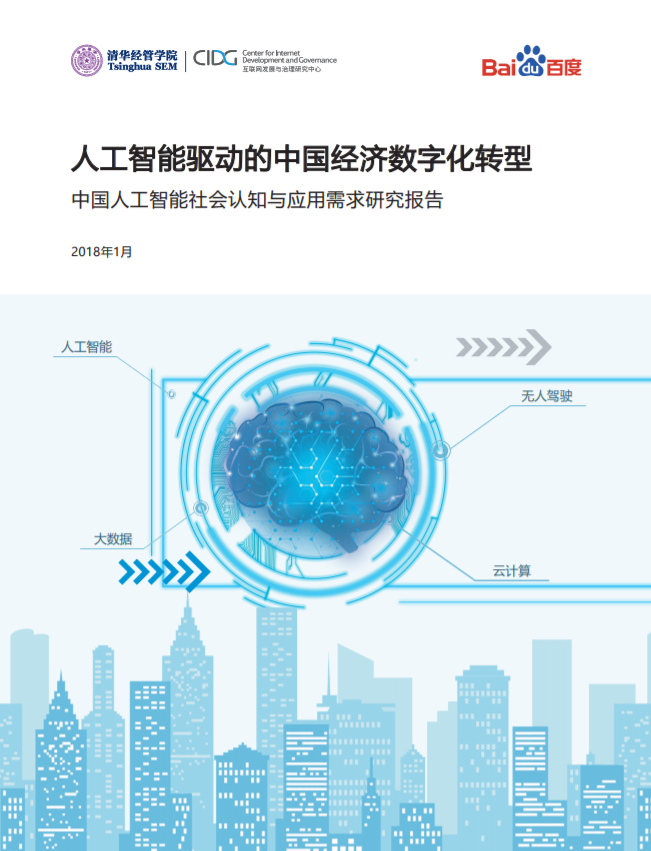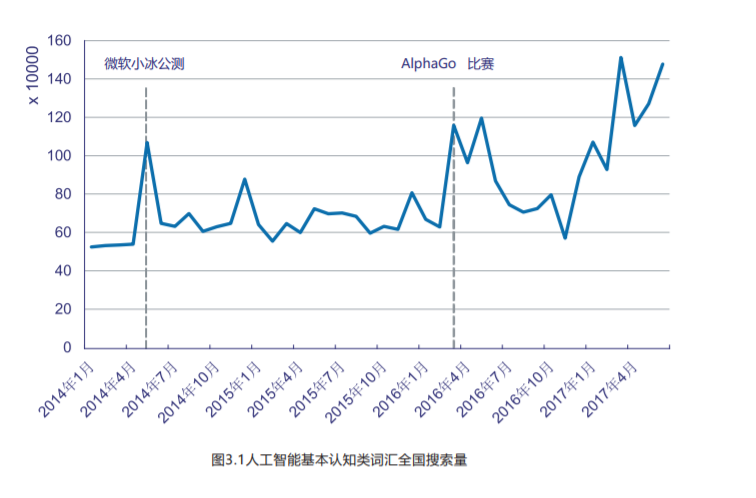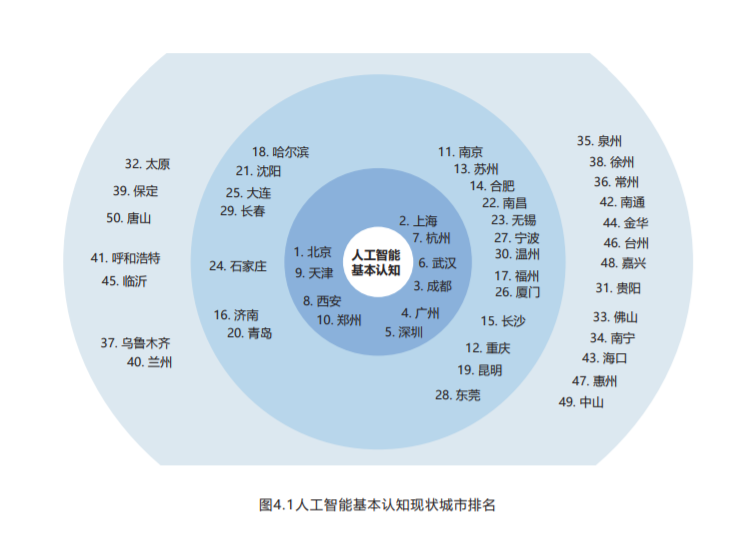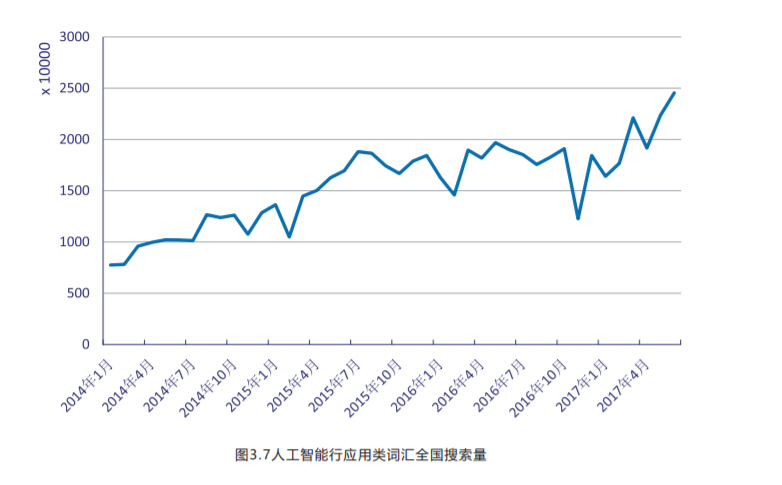Baidu Qinghua Jointly Releases China's "Artificial Intelligence Social Cognition" Report

This article is produced by NetEase Smart Studio (public number smartman 163). Focused on AI, we are exploring the next big era!
[NetEase Smart News, January 20] Yesterday, the Tsinghua University School of Internet Development and Governance Research Center collaborated with Baidu to release the report titled "Artificial Intelligence-Driven Digital Transformation of China's Economy: A Study on Social Cognition and Application of AI." The study offers insights into how artificial intelligence is shaping the future of the digital economy.
The report analyzed the social perception of AI using Baidu’s search data from 2014 to 2017. It highlights that AI has become a key driver in digital transformation across various sectors. With rapid technological advancements, new AI applications continue to emerge, reinforcing its role as a central force in the development of the digital economy.
According to the findings, China officially entered an AI-driven digital transformation phase in March 2017. Public awareness of AI has evolved from basic understanding to more technical and professional knowledge.

The report outlines two major stages in the public's basic understanding of AI from January 2014 to June 2017. The first stage, from January 2014 to February 2016, was a stable period where search volumes for basic AI-related terms remained consistent. Although there was a spike in May 2014 when Microsoft’s first-generation AI, Xiaoice, launched its beta version, this did not lead to a long-term increase in public understanding.
The second stage, from March 2016 to June 2017, marked a significant rise in AI awareness. This shift coincided with AlphaGo’s historic victory over human Go champion Lee Sedol in March 2016. This event sparked widespread interest and significantly boosted public engagement with AI concepts, marking a turning point in AI’s journey toward mainstream acceptance in China.

Geographically, southern cities have shown stronger AI awareness compared to northern ones. Among the top-tier cities, six out of ten are located in the south, including coastal metropolises like Shanghai, Guangzhou, and Shenzhen, as well as cities such as Chengdu, Wuhan, Xi’an, and Zhengzhou. In the second and third tiers, southern cities dominate, particularly in the Yangtze River Delta region.

The report also examined the evolution of AI application demand in China. From 2014 to 2017, it went through three phases: growth, stabilization, and a leap forward. The growth phase occurred between January 2014 and July 2015, followed by a stable period until February 2017. The third phase, from March to June 2017, saw a sharp increase in demand for AI applications, signaling a new wave of interest and investment.
Liang Zhixiang, Vice President and CEO of Baidu, emphasized that AI has become a national priority, aligning with the 19th National Congress’s call for deep integration of AI with the real economy. He stated that the collaboration between Tsinghua SEM and Baidu reflects this strategic direction.
Professor Chen Xiaobo, head of the research team, noted that one of the most remarkable aspects of AI's rise is its transition from specialized fields to broader societal impact. “Countries are not only focusing on innovation in AI but also on its broader implications for economic and social development,†he said.
To access the full report, please follow the official account "smartman163" on WeChat and reply with the keyword "Baidu Tsinghua Report."
Stainless Steel Oil-filled Seismic Pressure Gauge
Stainless Steel Pressure Gauge,Water Treatment Gauge,Oil-filled Pressure Gauge
ZHOUSHAN JIAERLING METER CO.,LTD , https://www.zsjrlmeter.com
